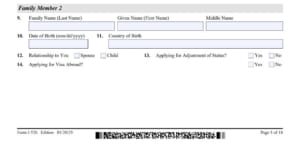The United States Department of State (“DOS”) in coordination with the American Immigration Lawyers Association, Department of State Liaison Committee (“AILA DOS Liaison”) recently published an advisory on changing venues for immigrant and K-1 visa processing for LGBT (Lesbian Gay Bi Transgender) applicants.
Since the United States Supreme Court issued its decision in United States v. Windsor, which struck down the Defense of Marriage Act, same-sex couples have benefited from a number of benefits, including immigration benefits. The DOS understands issues faced by LGBT applicants residing in countries where same-sex relationships are culturally frowned up and/ or illegal and has advised AILA DOS Liaison on the option to and procedures for changing venues so that the beneficiary spouse or fiancé(e) can have his or her immigrant visa or K-1 visa interview at a same-sex couple friendly U.S. Embassy or Consulate.
This information can be especially helpful to same-sex and LGBT beneficiaries in countries where overseas workers may be discriminated against or have concerns regarding safety, such as Filipino workers currently living in Middle Eastern countries.
The Petitioning spouse or fiancé(e) should first file Form I-130 Petition for Alien Relative or Form I-129F Petition for Alien Fiancé(e) and designating the consular post in the beneficiary’s “home.” Thus, if the LGBT immigrant or K-1 beneficiary is living in Kuwait or Saudi Arabia, they should nonetheless place down Kuwait City or Riyadh as opposed to Manila. Once the petition has been approved and transferred to the National Visa Center (“NVC”), either the beneficiary or the attorney of record may contact the NVC documenting the reasons why the beneficiary is afraid or unable to process in their country of residence.
The beneficiary or the attorney of record should also suggest alternative U.S. Embassies or Consulates. The NVC will then contact the designated posts while also providing the information forming the basis of the change of venue and request for an alternative U.S. Embassy or Consulate to take jurisdiction over the immigrant or K-1 visa case. Upon receiving confirmation, the NVC will advise the beneficiary or the attorney of record and also note the change of venue in the beneficiary’s A-file so the file can be transferred to the appropriate consular post.
For more information on changing venues for LGBT immigrant and K-1 visa applicants, contact us at info@enterlinepartners.com and speak with a U.S. immigration attorney in Ho Chi Minh City, Manila and Taipei.
ENTERLINE & PARTNERS CONSULTING
Ho Chi Minh City, Vietnam Office
Suite 601, 6th Floor, Saigon Tower
29 Le Duan Street
Ben Nghe Ward, District 1
Ho Chi Minh City, Vietnam
Tel: +84 933 301 488
Email: info@enterlinepartners.com
Facebook: Enterline & Partners – Dịch vụ Thị thực và Định cư Hoa Kỳ
Website: http://enterlinepartners.com
Manila, Philippines Office
Tel: +632 5310 1491
Email: info@enterlinepartners.com
Facebook: Enterline and Partners Philippines
Website: https://enterlinepartners.com/language/en/welcome/
Copyright 2022. This article is for information purposes only and does not constitute legal advice. This article may be changed with or without notice. The opinions expressed in this article are those of Enterline and Partners only.




